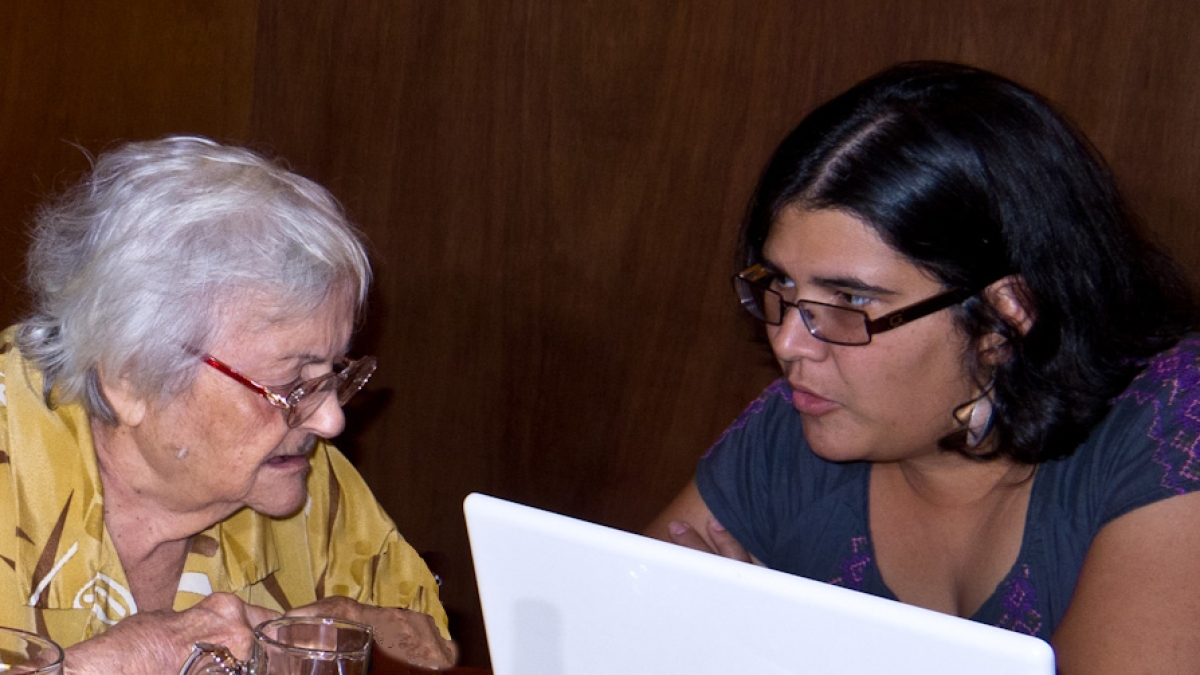Global health grad studies changing body image perceptions

When Isa Rodriguez-Soto began her global health doctoral program at ASU in 2008, she wasn’t exactly sure what "global health" as a concept meant. But she wanted to investigate issues of health regarding body size and knew that she’d come to the right place to do that.
“I talked about this with a faculty member, who mentioned that Puerto Ricans value ‘plump’ women,” says Rodriguez-Soto. “That bit of information from scientific literature had not been my experience growing up in Puerto Rico. This apparent incongruence between the scientific literature and my own experience slowly but surely became my research question.”
It turns out that the research cited by the professor had been conducted three decades ago. This sparked Rodriguez-Soto’s interest in understanding how and why culture changes in relation to body ideals.
Under the direction of medical anthropologist Jonathan Maupin, she used an intergenerational approach and discovered that Puerto Ricans find it acceptable to gain weight with aging, during a divorce or postpartum. Thin bodies are associated with beauty and health, and healthy women who don’t resemble the thin ideal submit themselves to dangerous weight loss practices to achieve social and self-acceptance.
“Weight discrimination and concern about being overweight were evident in Puerto Rican everyday life, indicated by the role of media and acculturation in this study,” she says. “In short, the positive valuation of fat in the Puerto Rican cultural body size model of the 1970s has shifted toward a negative valuation of fat and a preference for thin body size.”
Rodriguez-Soto admits, “When I started framing my research, in light of the global trends regarding body image, was when I really started understanding the ‘global’ in global health.”
She explains that, in our increasingly interconnected world, understanding shifts in cultural norms and ideals is important, as is documenting the changes themselves, along with the mechanisms that drive them.
“For example, in my research, based on scientific literature, we would expect media from the U.S. to be a major influence on body norms,” she says. “Interestingly, the media Puerto Ricans reported being associated with a thin body ideal were Latin American television shows.”
With recent research showing that fat stigma is now worldwide, Rodriguez-Soto realizes that her work is as timely as it is significant.
“The body is one of the primary ways through which we experience our daily lives," she says. "How we feel about it, how particular bodies are valued or conceptualized in society, has a direct impact on how we view ourselves.”
“Isa represents the philosophy and scope of the global health program in the School of Human Evolution and Social Change, integrating in-depth ethnographic research with empirical data to examine the dynamic interplay between culture and biology," says Maupin. "Her work is theoretically and methodologically innovative and makes a significant contribution not only to studies of body image, but also larger issues of cultural stability and change.”
Before coming to ASU’s College of Liberal Arts and Sciences, Rodriguez-Soto received a bachelor’s degree in biology from the University of Puerto Rico in her hometown of Mayagüez and a master’s in anthropology from the University of Colorado at Boulder.
She will graduate this May and assume a tenure-track position as an assistant professor in the Department of Anthropology and Classical Studies at the University of Akron in Ohio in the fall.
She plans to continue exploring body size models with ethnic minorities in the United States, as well as her research in Puerto Rico by examining the emerging issue of weight discrimination and assessing nutrition, food access and food perceptions on the western main island.